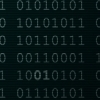I''ve been having a hard time with this, I understand objects and stuff, just not character pointers to character arrays
// VName.h: interface for the CVName class.
//
//////////////////////////////////////////////////////////////////////
#if !defined(AFX_VNAME_H__F22CD424_BBA3_4300_A112_3EC221A220B3__INCLUDED_)
#define AFX_VNAME_H__F22CD424_BBA3_4300_A112_3EC221A220B3__INCLUDED_
#if _MSC_VER > 1000
#pragma once
#endif // _MSC_VER > 1000
#include <string.h>
class CVName
{
public:
void setName(const char m_pName);
char* getName();
CVName();
virtual ~CVName();
private:
char* name;
};
#endif // !defined(AFX_VNAME_H__F22CD424_BBA3_4300_A112_3EC221A220B3__INCLUDED_)
// VName.cpp: implementation of the CVName class.
//
//////////////////////////////////////////////////////////////////////
#include "VName.h"
//////////////////////////////////////////////////////////////////////
// Construction/Destruction
//////////////////////////////////////////////////////////////////////
CVName::CVName()
{
name = new char[21];
}
CVName::~CVName()
{
}
char* CVName::getName()
{
return name;
}
void CVName::setName(const char m_pName)
{
strncpy(name, &m_pName, 20);
}
How do I pass more then one char through a parameter?




 --{You fight like a dairy farmer!}
--{You fight like a dairy farmer!}

